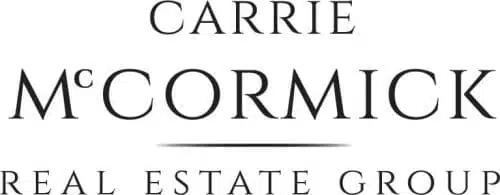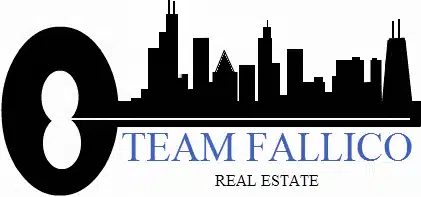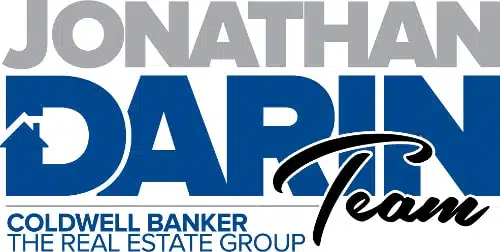Welcome to the January episode of Learning With A Lender with Joel Schaub!
In our first Learning With A Lender episode of 2019 Joel Schaub, Vice President at Guaranteed Rate, talks about how how the government shutdown is affecting lending rates, providing a real estate broker with an amazing opportunity to add value when contacting clients. I take a listener question to ask Joel about the difference between a pre-approval letter and a pre-qualification.
Joel Schaub can be reached at joel@rate.com or 773.654.2049.
Transcript
D.J. Paris 0:14
Hello and welcome to another episode of Keeping it real the only podcast made by Chicago real estate brokers for Chicago real estate brokers. My name is DJ Paris, I am your host, and welcome to learning with a lender. This is our monthly series with guarantee rate Lending Specialist Joel shop. Little bit about Joel, if you’re a new listener, he’s vice president of lending guaranteed rate, Joe has been doing loans at a high level since 2003. has gotten to that level because of what he does directly for agents, he gives part of his commission back to the buyer on every transaction. Last year alone 2018, Joe gave back over $271,000 in closing costs to buyers who worked with him. And that put his value in the top 1/10 of 1% of all lenders nationwide. out of 380,000 loan officers in the country, Joel is ranked 100 and 81st. Year to date, or rather last year, Joel closed of 200 transactions for just under six or just reps are just at 65 million in closings. And obviously it’s the new year. So we don’t have his numbers yet. I’m sure they’re going to be as good if not better. And by the way, you should reach Joel before I get before he says hello, you can reach Joel at his email address, which is joel@rate.com. Let’s say hello to the biggest Cubs fan. I know Joel Shah. Good morning.
Joel Schaub 1:39
Thank you so much. It’s pleasure to be here, again, and I appreciate all the props. But this is all about giving back and actually helping these agents that are listening, find their genuine self and grow their business.
D.J. Paris 1:52
Great. So what do we have to what are we talking about today?
Joel Schaub 1:56
Well, it’s just that how can we add value, right? People come to me all the time, and they know the volume that I’m doing and they think there’s a secret, right? Right? Watch this guy do it. And there really isn’t anything that is other than hard work and finding out what you like to do. And being that genuine self. So for me, you know all about the Wrigleyville buildings, right? All the billboards, and the charity events. So if you find what it is that you like to do, it’s so much easier than buying leads or going through all of these different steps. You build your business, and if you can find that, that you are genuine about. That’s how I grew my business.
D.J. Paris 2:40
Yeah, and we should also talk about realtors to the rescue since I know you are a part of that organization on the board. I have attended a few events of theirs years ago, and I sort of just fell off. Carrie McCormick, by the way is also associated with Arizona, who’s on our podcast, and that’s a passion of yours. Can you talk about that a little bit?
Joel Schaub 3:00
It’s the exact same thing. We’re on the board of directors, my wife Christina and I for real estate to the rescue. It used to be called realtors to the rescue. Right?
D.J. Paris 3:08
I remember what it was called that. Yeah, right. And so
Joel Schaub 3:11
it’s the exact same organization. And what we do is we help no kill animal shelters throughout the state of Illinois. And our big annual event is the Cubs outing. Last year, we raised 10s of 1000s of dollars for no kill animal shelters via cubs outing, we did raffle we did silent auction. And the date this year will be June 21. So save the date. And it will be a great event for real estate as far as actually growing your business networking, and not all about you. It’s about trying to find a way to give back. And it’s a perfect example of one of the ways you can be really active and give back.
D.J. Paris 3:54
I agree. And I recently I’ll tell you a quick story, Grace Goro, who’s been on the show, she has an app properties broker, she did an event that I wasn’t she was nice enough to invite me to, which is nice because it was also down the street at the paws facility downtown. And she did an event she contacted all of her clients and said, Hey, why don’t we go volunteer over at PAWS together as a group for a couple of hours on a Sunday. And she brought in pizza probably I don’t know, you know, if it cost her a lot to set this up. I suspect it didn’t. But I was happy to go because I support pause as well. And, and I went there to support grace and we got to play with the animals. We got to make toys for them. And you know, and again, I’m not one of Grace’s clients. I’m more one of her friends. But a lot of her clients were there. And this is something she’s Ultra passionate about. And as a result, it made everybody feel feel great about themselves, hey, we just did something good and also supported Grace and I suspect it may have even landed her a few deals as well. I don’t know it happens
Joel Schaub 4:56
that way. You’re exactly right. If you can use it and promote it and social media and show that you actually are out there doing something. So many agents get stuck in the same rut of posting on social media and saying, Don’t forget about me, I’m never too busy for your referrals and the nice thing, right?
D.J. Paris 5:14
Every, everybody says, I’m never too busy for your referrals,
Joel Schaub 5:18
we’ll never be too busy to go back and volunteer never go out and give back. People were attracted to that. And so years ago, I realized if I could actually find a few things that I’m genuinely passionate about, it will help grow the business. And that’s how I’ve just been genuinely involved in these different events, these different charities, and it truly is this concept. You’ve heard me say it before givers game, okay? If you can find something that will be genuine to you that you can give back your business grows. And it really truly, in my case has.
D.J. Paris 5:52
Yeah, it’s a win all the way around. I couldn’t I couldn’t agree with you more. And if you haven’t attended one of Joel’s his, his events outside of Realtors, the rescue events Joel puts on he does a lot of bingo events. They in a weird way, in that weird way. But you see the absolute passion Joel has for the people who attend. And these are realtors, these are clients. I mean, between you, your wife, and I Oh, gosh, I’m blanking on the third person’s name, who’s also there helping out but I mean, everyone is on board, it is a party and it’s in the middle of the day. You know, it’s it’s a great getaway. And you give away a lot of wonderful prizes. But again, that is that is giving back you are actually giving back in those instances. And it’s, Boy, I’ve never been to an event quite like that. And if you’re listening and you, you want to see what it’s all about. I’m sure you know Joel can can send you an invite, but
Joel Schaub 6:51
there’ll be another one coming up, we do an annual or we do a four times a year annual bingo event and it’s fun, we’re giving away large screen TVs, trips to Vegas 12 person boat cruises, brand new iPhones funds, things that you could actually get excited about coming to an
D.J. Paris 7:10
event like that. And by back to realtors the rescue for a moment I forgot to mention I will put a link to Pete if you’d like to get involved and donate some time, donate some money or or just just spread the word, I will have a link to realtors, real estate to the rescue rather on the description so people can get involved that way as well. Yes,
Joel Schaub 7:31
absolutely. There’ll be a link as soon as that goes up for the June 21 event. This is one of the easiest simple ways to get involved. You donate $100 Not only does it get you good tickets to the Cubs game, it gets you a pre party, as well as your name out there in the community as somebody who’s giving back.
D.J. Paris 7:51
Wonderful, wonderful. Yeah, so what I’ve always thought so I’m involved with a with a with an organization myself that’s unrelated to real estate. And it’s something that that I’ve become passionate about over the years. It’s a place called misery Cordia here in Chicago, I’ve been doing that forever. And I will tell you, when you find your your passion in with respect to giving in particular, I mean, I can honestly say that for me personally, and this is something I did Gosh, I’m now in my fourth year there. It’s I can divide my life up into pre misery cardio and cardio, and it is much better post. And so yeah, you know, and we’re so lucky in Chicago in the suburbs as well to have so many opportunities to to give back. There are just a million a million ways to do it.
Joel Schaub 8:42
I think I’ve told you this story before, but this is perfect for the listeners that haven’t heard this. So years ago, I was a mortgage broker. And it was 2006. And so let’s think back to that time, right? Everyone in their brother was getting into mortgage getting into real estate, because you could not work very hard. make six figures just kind of bumbling your way through it. Right? Every person that you would meet would be part time realtor or part time mortgage guy. And it was back when I could actually do mortgages for almost anybody and I would give my business card. This time I gave it to a cab driver. And he looked at it and he said, Oh, I also do mortgages, man. And so think about that for a second. I’m sure the cab driver was also doing mortgages, right? Everyone was doing one or two deals a month. And those guys are all gone. Right? Right. Sure. I decided then then I’d have to do something to differentiate myself to actually grow the business to this multimillion dollar level that I wanted to get to. And I knew DJ couldn’t control rates, right? But I could control closing costs. I could give back part of my commission and actually help people get over For the edge, if they couldn’t quite come up with the cash, foreclosing, I could give part of my commission back and help them get over the edge. Flash forward to today, that’s what I do is on every transaction that a realtor sends me, I could be their real estate partner on the mortgage side and give their buyers $1,500 In closing cost credits, it covers our underwriting fee and appraisal. And that’s how I got to over 271 grand out of my commissions last year alone, that I forego, and I give back to buyers. Yeah, it’s
D.J. Paris 10:33
it’s incredible. I mean, you know, Joel has has a very impressive reputation in the broker community as well with his directly with his clients. And part of the reason in addition to being so generous with giving closing costs, you know, credits is how quickly you are to respond. I mean, this is you were just on a massive vacation down to South America. And, and I had forgotten Joel was down there, because I’m way too wrapped up in my own life to realize what everyone else is doing. And I said, Hey, when are we doing our podcast, and it was already on my calendar. That’s how dumb I am. But Joel, was probably on a beach, or wherever you were doing it, I know, you’re doing other things down there, too. But he goes, within five minutes, he responded. Now I you know, obviously, I’m sure you take time off too. But this is another yet another example. And for anyone I’ve referred business to Joel as well, and everyone has the same, the same, you know, sort of experience and this isn’t specifically a commercial for how great Joel is, but he but he is actually that great. So it’s one of those things that I am, you know, happy to tout your your praises, because, again, please understand, you know, Joel takes time out of his his very, very busy calendar to, to do the show, which we’re very grateful for the fans and listeners love it. In fact, I have a question for you from one of our listeners, if you have a fantastic, let’s question. All right, so the question is, and it’s a good question, I think maybe not every broker fully understands the difference between pre approval letter and a pre qualification?
Joel Schaub 12:10
Oh, that’s great. Okay, most of the time, we’re using that word pre approval letter, right? It’s kind of across the board. But there is a major difference, whether or not the clients provided documentation so that we can actually prequalify the borrower. So let’s start with pre approval. A pre approval letter will help a client go through just the basics to understand what they qualify for, on a monthly payment. Okay, the pre qualification, I actually collect the pay stubs, the bank statements, the tax returns, run it through an automated system, and actually have the knowledge and expertise to say, Okay, if you got a property under contract, you’re already qualified. All I need to do is send it in to my underwriter. So there’s a major difference between just getting one of those online pre approval letters. Sure, right. We’re not here to talk good or bad about any banks, but we know some of them that will just issue you a letter sir matter of minutes without even looking at anything. We might not want to take that with as much of a grain of salt as compared to having true pre qualification. So it’s, it comes back to this as an agent, whether the letter says pre approval or pre qualification, call the loan officer that’s listed there. Okay. Right, just have a conversation. See, if they pick up the phone, you’ll know where you stand pretty quickly if the person on the other end says, Wait, who? Right What borrower name? I don’t, or, Oh, the Johnsons? Yeah, I spoke to the Johnsons last week, their pay stubs are in, we know exactly what’s going on in that file. They’re good all the way up to 380. But I think they should keep their assessments on the place below x. And this is based on a maximum tax bill of why those are the types of things that you really want when you’re finding your team and your partner. It’s not just me, there’s 1000s of great loan officers out there that actually take the steps to do the pre qualification. And that’s the major difference.
D.J. Paris 14:10
That’s great. So I know you had some thoughts about what’s what’s currently going on in the lending world. Would you like to share this?
Joel Schaub 14:17
Well, the government shutdown, do you know about this?
D.J. Paris 14:20
I you know, I got a text about it from a friend. But that was No, yeah, I’m very aware of the
Joel Schaub 14:25
thing. Something about this, right. Yeah. So what does it mean? It’s actually one of the first time something is good for the buyer rates have dropped, right, right rates have dropped specifically because of this. So I’ll get into a little bit of the behind the scenes, right. When the stock market falls off, a lot of money goes into the treasuries, right safety and security of US backed bonds. When the price of those bonds goes up, the rates come down. So what happened we’ve seen rates right now at eight or nine month lows, okay. Just as early as November rates were at almost 4.8 Seven, five. Today they’re half a point lower, we’re at 4375 or below for a great borrower. So this is a great opportunity for these agents to do two things. One, add value by connecting with your past clients not about selling them anything, not calling up and saying hi, I’m never too busy for referrals, literally calling up and saying, guess what? We got the property closed seven months ago, did you know that rates dropped, it might be a good opportunity to reach back out to your loan officer to see if they can lower the rate for you. Wow, what a phone call that could be to an agent just calling back their past buyers. And adding value
D.J. Paris 15:40
some Well, I’m like that? Well, I’ll tell you I, you know, and I, my last mortgage I did was actually a refinance with guaranteed rate. And I had an amazing experience. But prior to that, I was with a different lender who I really liked who is at a different company, and they were very nice and professional. And for the, I don’t know, 12 years or so I had that mortgage, not once did any did my realtor call and forget about the loan officer, I never heard from them. And this is not guaranteed, right? Never heard from them. And certainly never, never heard from my realtor saying, Hey, this is an opportunity to you may want to look to see if you, you know, could refi and I was always the one proactively contacting the loan officer. And so for brokers out there listening, you know, all you ever have to do is once a year contact, you know, when there’s news like this, contact your your owners and say, hey, you know, you, I don’t know if this would affect you in any way. But here’s something to think about. Here’s a guy that you can talk to, and obviously pass a loan, pass along the lender that does a good job and answers the phone. And it’s such an amazing reason to pick up the phone and contact someone after the sale. Yeah.
Joel Schaub 16:49
And a lot of agents don’t really know this, this is a major drop right now for people that locked in the best rate over you know, close to 5% for below four and a half for them to call up and just have that knowledge and say, Hey, this is what’s going on in the market, it really adds value. Now you’re doing something that’s not asking for sale, you’re not asking for a referral, right, you will get a referral, you will be looked at as a trusted adviser, look who reached out to me. Because here’s what happens.
D.J. Paris 17:17
And there’s and by the way, there’s nothing in it directly for the realtor other than it’s just, this is a very nice thing to to let the
Joel Schaub 17:25
right now this should be this next week, right? Yes, you know, this is where the market is. And that inherently is the reason that it works because you are actually providing value, you’re doing something that they’re not expecting. And even if they don’t do anything, you’ve solidified yourself as not just a salesperson, you reach out to them and help them so rates are down, I’ll just give a little recap. So people are hurt the market is so on a conventional mortgage for a 30 year fixed. Those rates today are at 4.375. clients that are on an arm guaranteed rate today had arms that were five and seven years that were down at 375. Wow. Okay, so those are the types of things that you can say you don’t need to know all the details, just enough to be dangerous.
D.J. Paris 18:12
I mean, all you need to know at this point is call up all your clients and say, Hey, rates have dropped? I think it might be a good idea to revisit whether it’s a good time to refinance. Do you have can I provide you this lender that does a great job,
Joel Schaub 18:26
that even the last loan officer, this is not a pitch for us? Oh, sure, you know, that they closed and they had a great experience. Now, oftentimes they say, Well, I don’t want to have the cost associated with doing a refinance. Right? So and clients have known this about me for years that I’ll do any refinance for a flat $350. That includes appraisal, underwriting, processing, everything for $350, just during the business. So that is almost $2,000 less than just walking back into the bank.
D.J. Paris 18:59
Yeah, that’s, that’s, that’s great. I have a quick tip. And this is I apologize a bit out of order. So for those people listening, we talked earlier Joel was talking about the difference between pre approval pre qualification. I have a quick tip. This just came to me and for those who are listening who are working internet leads specifically, we’re going to specifically talk about live transfer leads from places like Zillow, Trulia, there’s realtor.com. I think one I don’t think they have them but but there’s a number of services you can be purchasing leads from and a lot of brokers purchase leads. So here is one thing that blew my mind. So Zillow brought me out to New York, which is very, very nice of them. And it was nice for me to get out there. And I was talking to them and I said, you know, there are a lot of brokers purchasing leads, what’s the one thing that brokers don’t realize, and the mistake they made about working internet leads and I you and I are talking about referrals? And so I’m gonna go two different directions just for a quick second because I think this could help somebody listening. So one of the big mistakes so we all know backup just a second when we talk to a prospect, one of the first things a buyer we say is, hey, do you have do you have your pre approval letter have you? You know, that’s really important because we want to gauge how serious they are then that they’ve taken that step. However, and that is a great rule of thumb, except when you’re dealing with live transfer leads. So for example, Zillow, a lot of times what happens is the consumer calls Zillow and says, hey, I’m interested in XYZ property, the way that Zillow passes these leads the person the the say, the phone rep goes, Hey, nope, great. Um, let me pass you through to one of our they qualify them for quick moment to make sure that they’re serious, not working with a broker, and then they go, Hey, let me pass you over. And then people who are purchasing these leads, get this phone call. And whoever answers it gets it in. Anyway, the big mistake that Zillow said that brokers make is they the person starts qualifying once they get connected, they start qualifying this, this potential buyer on the phone, and I said, You cannot do that what you have to do is go great, you want to go see that property? When are you free? And I’ll call you right back to confirm that that’s, you know, that that’s confirmed, and we’ll meet tomorrow or whatever. And I said, Well, you don’t you don’t want to qualify them. And they go, no, no, because realize this person already knows more about the property than you they’ve already done all their research, they just want to go see it. So if you’re purchasing leads, they said your phone call should not take more than 60 seconds. Now you do of course want to qualify them at some point. But they said, look, it’s the equivalent of getting into an Uber, you already know where you want to go. And the person going, hey, you know, so what’s going on? What are you up to? It’s like, just drive me to where I want to go. So if you are purchasing leads, yes, you have to qualify, but do not do it until you get to the meeting. And that is counterintuitive. And it goes against a lot of traditional, you know, thought and again, if you’re not working internet leads, this does not apply, but it’s something to consider as you can always find out. And the other thing too is the Zillow rep said to me, would you talk about your finances with a perfect stranger? You didn’t know this is? You know, I don’t know, I probably wouldn’t. So anyway, just but definitely find out if they’re approved at some point, just maybe not on that first phone call if you’re working internet leads.
Joel Schaub 22:10
That’s why this podcast is so helpful. Like that is a complete 180 from the way we work. It adds value because it’s really true, especially with today’s consumer, they don’t they think they already know more than the person they’re talking to anyway.
D.J. Paris 22:24
And they might they might actually no more.
Joel Schaub 22:27
Okay, that’s bad. I hope that helps some of the agents out there.
D.J. Paris 22:29
Well, you know, Joel is so gracious with his time we I’ve taken up too much of his time already. So we are going to, to conclude this. This episode we’re going to come on, but I want to say to the listeners and we Joe wants to answer your question. So please send your questions in. There’s a number of ways you can do that. Obviously, first of all, if you need a lender or lending partner, and you want to reach out to Joel joel@rate.com. Joel, what’s your phone? Do you mind sharing your phone number as well?
Joel Schaub 22:59
No, it’s not a problem. You guys in 2019. If you guys actually are looking to get a mortgage professional that would answer these calls on Saturday nights and Sunday, and go that extra mile to help the borrowers. You just dial me set up a time to talk, make sure I’m a good fit for you. You’re a good fit for me. And the phone number for my office direct. I love giving it out. It’s on every billboard by the way. That’s true. 773-654-2049
D.J. Paris 23:29
And again, the email is joel@rate.com. And please can see oh one more quick thing for listeners. We are now on Alexa. So if you have an Alexa device, all you have to do is say Alexa please I’m probably going to be setting off people’s Alexis with this. But Alexa, please, please play keeping it real podcast and it will pull up the most recent episode. It’s kind of a key word. I’m a nerd. So I like that stuff. I love it. But anyway, we have lots of new listeners we have just as of yesterday, I saw our stats we just didn’t last week I added another 100 new listeners which is so we’re so grateful. So if you’re listening and you have other brokers, you know that could benefit from listening to someone like Joel and the other wonderful guests we have on the show, please pass this podcast along. Also, you can find us on Facebook keeping it real pod. Our website is also keeping it real pod.com. We’re on iTunes Google Play, hopefully Spotify soon we’re waiting to be approved there. But anyway, this has just been a lot of fun. And it’s our it’s our way of giving back as well. So we hopefully this has been helpful for everyone. And on behalf of Joel and myself. We will see you in a month. Send us your questions for Joel. And remember if you need a lender, just call Joel that’s that’s his slogan and it’s a good one because he actually picks up Thank you Joel and we’ll see everyone on the next episode.
Joel Schaub 24:49
It was my pleasure. Bye everyone.
Subscribe: Apple Podcasts | Spotify










